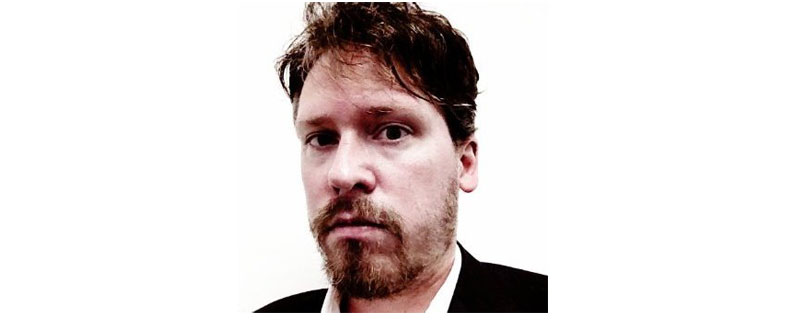This past spring, Andrew Coy and Shelly Blake-Plock (that’s @BlakePlock) formally introduced Baltimore to the Digital Harbor Foundation, along with an EdTech fellowship program designed to do one thing: create a Little League for technology, to borrow an oft-used phrase from Coy, and get the city’s public school students coding and creating in after-school tech clubs.
The intersection of education and technology is ground Blake-Plock knows well, his studies in classical civilizations at Harvard University notwithstanding. He earned his master’s in education from Johns Hopkins University, where he was responsible for creating the first course on social tech-integrated paperless classrooms at the university’s School of Education.
A co-executive director of the foundation, Blake-Plock writes frequently on digital access and digital divide issues as well — nearly a year ago in the Baltimore Sun, he wrote that a “gap will emerge between those schools that can offer the capacity for network building — represented by their own network of connected teachers and administrators — and those that will not make the connection.”
Technically Baltimore sat down with Blake-Plock to ask him what the Digital Harbor Foundation’s role is in closing that gap.
TB: Patrick Gavin, one of the EdTech fellows, said he wanted to be a “guide on the side” as opposed to a gatekeeper of information in his classroom. Do lectures just not work anymore?
SBP: Public schools were created to produce workers who would work in factories. So the idea was you had to be able think linearly, to take directions and you had to be able to apply that directly to the work that was in front of you and you did one thing. That’s the lecture format.
Now in a post-industrial society that values collaboration, that values innovation and fast innovation—it’s just a different thing. We resist changing our models of failure in schools at our own peril. Because what failure represents is different in a post-industrial, information-based society than it is in an analog industrial society.
TB: So failure should be seen as a good thing? Not the thing that earns you less than a D on an exam.
SBP: The best class in high school is pottery class, because in pottery class it’s hands on and you know yourself, before you ever had to give it to the teacher, whether or not it worked. And then once you figure out how to make it work, then you can do anything with it. So if you’re teaching kids basic rapid prototyping techniques—either that 3D printer’s going to work or it’s not—but once you figure out how to do it right, then it’s just creativity. There’s not a test that tells you, well, actually you’re a failure.
TB: What’s the Digital Harbor Foundation’s role in changing that paradigm?
SBP: One of the things that I think takes just what we do in general out of the realm of your ordinary education-type thing—for us the point is kids getting paid to use their brains. Actually learning and then applying the learning and not having to wait to apply the learning. Not having someone say, ‘Well, in four years, or in eight years, or if you just get a college degree someday you’ll get to do this stuff.’ That’s ridiculous.
TB: That sounds like the digital badges initiative that the MacArthur Foundation is putting money toward.
SBP: The Open Badges project started with the idea that—Mozilla recognized that in the technology field, things like a computer science degree just aren’t granular enough to tell you what the people actually know and that they’re keeping up with what they need to know. The badges became an obvious way to do that.
TB: And a similar concept is something employed in the foundation’s STEM League, right?
SBP: This is the curricular vehicle for getting that stuff through. From the kid perspective, this is an opportunity to take on real challenges developed by real industries [and] get mentored by real technologists [and] get real paid internships.
We have challenges scheduled for the academic year. If all goes according to plan, the challenges will roll out starting in January. There’s cybersecurity—kids playing offense and defense and having to hack into the others’ [computers]. Web design—all real jobs [with] real clients. Baltimore Free Store’s website? That was one of our kids. Baltimore Angels, their site? One of the kids. These are real organizations in the city.
TB: In short, tell kids they don’t need to wait until college to learn real skills and start earning money.
SBP: There are kids who need jobs and [the STEM League is] a great way to get them after school working on these jobs. They get paid and they’re off the street. Now instead of spending three hours wandering around their neighborhood wondering what to do, they’re spending three hours learning to code.
Join the conversation!
Find news, events, jobs and people who share your interests on Technical.ly's open community Slack

Baltimore daily roundup: An HBCU innovation champion's journey; Sen. Sanders visits Morgan State; Humane Ai review debate

Baltimore daily roundup: Medtech made in Baltimore; Sen. Sanders visits Morgan State; Humane Ai review debate

Baltimore daily roundup: The city's new esports lab; a conference in Wilmington; GBC reports $4B of economic activity

